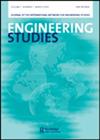Women Engineers on Their Way to Leadership: The Role of Social Support Within Engineering Work Cultures
IF 1.3
3区 工程技术
Q2 EDUCATION, SCIENTIFIC DISCIPLINES
引用次数: 8
Abstract
Women engineers in Germany rarely reach the higher management levels of companies. The men-dominated work culture in engineering is regarded as one of the reasons for this. In particular, because there is a masculine ‘engineering habitus’, the women’s habitus conflicts with the field-specific rules. However, successful women engineers are able to deal with and adapt to the ‘engineering habitus’ to integrate into the profession. This study examines the importance of the help of others in overcoming this problem. It asks how social support promotes the adaptation to an engineering habitus that benefits women engineers who aim to achieve leadership positions. To answer this question, qualitative interviews with women engineers who hold leadership positions were analyzed. The results reveal that the adaptation to the engineering habitus can be facilitated by the social support of various persons. In particular, supervisors, role models, and colleagues introduce women to the work culture and they give them access to higher-status persons. Partners and women’s networks provide emotional support to deal with gender-specific challenges and they help to alleviate the conflict between their roles as women, mothers, and engineers. This study deals critically with masculine norms in engineering and highlights the need for an inclusive work culture.女性工程师走向领导之路:工程工作文化中的社会支持作用
德国的女工程师很少能进入公司的更高管理层。男性主导的工程工作文化被认为是造成这种情况的原因之一。特别是,由于存在男性的“工程习惯”,女性的习惯与特定领域的规则相冲突。然而,成功的女工程师能够应对和适应“工程习惯”,融入职业。这项研究考察了他人帮助在克服这个问题中的重要性。它询问了社会支持如何促进对工程习惯的适应,使旨在获得领导职位的女性工程师受益。为了回答这个问题,对担任领导职务的女工程师进行了定性访谈。结果表明,不同人群的社会支持可以促进对工程习惯的适应。特别是,主管、榜样和同事向女性介绍工作文化,并让她们接触到地位更高的人。合作伙伴和妇女网络为应对特定性别的挑战提供情感支持,并帮助缓解她们作为妇女、母亲和工程师的角色之间的冲突。这项研究批判性地处理了工程中的男性规范,并强调了包容性工作文化的必要性。
本文章由计算机程序翻译,如有差异,请以英文原文为准。
求助全文
约1分钟内获得全文
求助全文
来源期刊

Engineering Studies
ENGINEERING, MULTIDISCIPLINARY-HISTORY & PHILOSOPHY OF SCIENCE
CiteScore
3.60
自引率
17.60%
发文量
12
审稿时长
>12 weeks
期刊介绍:
Engineering Studies is an interdisciplinary, international journal devoted to the scholarly study of engineers and engineering. Its mission is threefold:
1. to advance critical analysis in historical, social, cultural, political, philosophical, rhetorical, and organizational studies of engineers and engineering;
2. to help build and serve diverse communities of researchers interested in engineering studies;
3. to link scholarly work in engineering studies with broader discussions and debates about engineering education, research, practice, policy, and representation.
The editors of Engineering Studies are interested in papers that consider the following questions:
• How does this paper enhance critical understanding of engineers or engineering?
• What are the relationships among the technical and nontechnical dimensions of engineering practices, and how do these relationships change over time and from place to place?
 求助内容:
求助内容: 应助结果提醒方式:
应助结果提醒方式:


